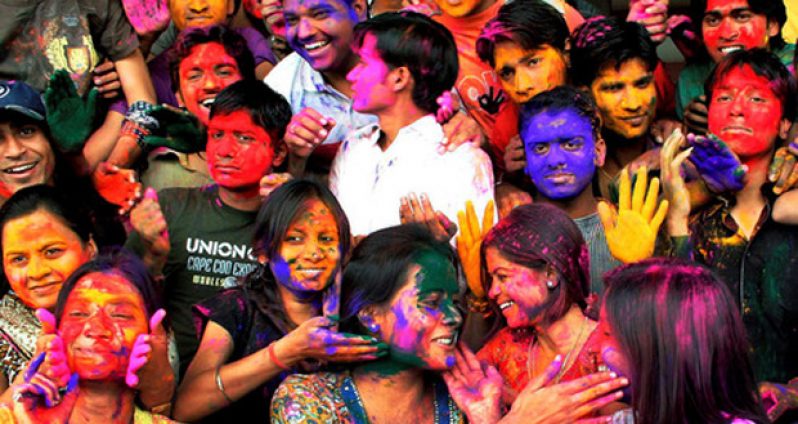JUST as with the many other major Hindu festivals, the large Indian majority (about 63 per cent) celebrate Holi with a lot of enthusiasm in the island of Mauritius.
It is an official holiday in the country, and therefore people get all the time to make merry and drench themselves in the spirit of Holi and, of course, coloured water.
Hindus in Mauritius duly perform the tradition of Holika Dahan, or lighting of bonfire, on the eve of Holi, and celebrate the victory of good over evil.
Pakistan
Hindus residing in Pakistan also celebrate holi, though of course in not as grand a fashion as seen in India.
People celebrate the victory of good over evil forces by lighting bonfires, called Holika. The tradition comes from the legend of Prahalad and Hiranyakashyapu. In fact, people follow the same traditions and rituals as in India, due to their roots in India. People clean their houses and prepare special delicacies like gujiyas, papri and dahi badas. They meet up with friends and play with the colours, dance, and generally have a good time.
South Africa
Indians, wherever they may be, take immense delight in celebrating the festival of Holi, and South Africa is no exception.
The vibrant Gujaratis and other Indians settled in South Africa have made it a point to keep the tradition of celebrating Holi alive in the country.
They play colours; light bonfires, called Holika; sing Holi songs, and make merry. The evenings are spent in meeting friends and relatives, and exchanging greetings and sweets.
People believe that it is becoming all the more important to keep the ancient customs alive in this conflict-ridden society. The festival of Holi is vital in this aspect, as it is believed that Holi helps people to get closer.
It generates warmth in relationships, and even enemies turn friends in the spirit of Holi.
Trinidad and Tobago
Holi is celebrated with a lot of pomp in the twin-island state of Trinidad and Tobago, which has a large Indian diaspora. There, it is largely known as Phagwa.
Holi is said to have come to Trinidad around 1845, by the Hindus who migrated from Bihar as contractual labourers on the sugarcane field. Since then, it is celebrated every year with great enthusiasm.
In the early days, the festival was observed very modestly because of the many constraints that the Hindus had to deal with. But today it is celebrated at a national level in a grand style throughout Trinidad.
Just as their counterparts in India, Hindus in Trinidad and Tobago celebrate the festival with colours, songs, music and dance. A variety of water colours are mixed and sprayed on all those who participate in the celebrations till they become unrecognisable. People also exchange sweets and greetings with each other. Hard feelings or animosities, if any, are also washed down with the coloured waters of Holi, and general harmony prevails.
United Kingdom
Hindus settled in UK do not miss out on the excitement of Holi celebrations, and enjoy same to the hilt. Zeal for the festival is particularly marked in this country, as Indians constitute the second largest ethnic minority.
Celebrating festivals helps them to feel close to their families and their cultural roots.
The celebration of Holi is noticeable at places that witness a large congregation of Indians. The British city of Leicester is particularly known for its love for celebrating Indian festivals. Excitement reaches its peak when the occasion is that of celebrating a joyous festival like Holi.
Children love to use their spray cans and colour each other. Holi parades are also staged, and in the evening people visit their friends and relatives to exchange greetings and sweets. They hug each other and also apply the tilak as the meet Holi in a traditional manner.
USA
With a large population of Indians settled in the United States of America, Holi is celebrated with gaiety and lots of fanfare in this country.
Different societies formed by the Indians and religious organisations help people to celebrate this joyous festival and feel close to their cultural roots. Musical programmes and Holi Meets are also organised by them to mark the occasion. These meets help the new generation to identify with their cultural roots. Children learn to understand the significance of celebrating festivals, and know legends associated with them.
Great enthusiasm for the festival can be specially witnessed in cities where large numbers of Indians have settled. Holi celebrations are particularly marked in the city of New York. (http://www.holifestival.org/holi-around-the-world)




.jpg)









